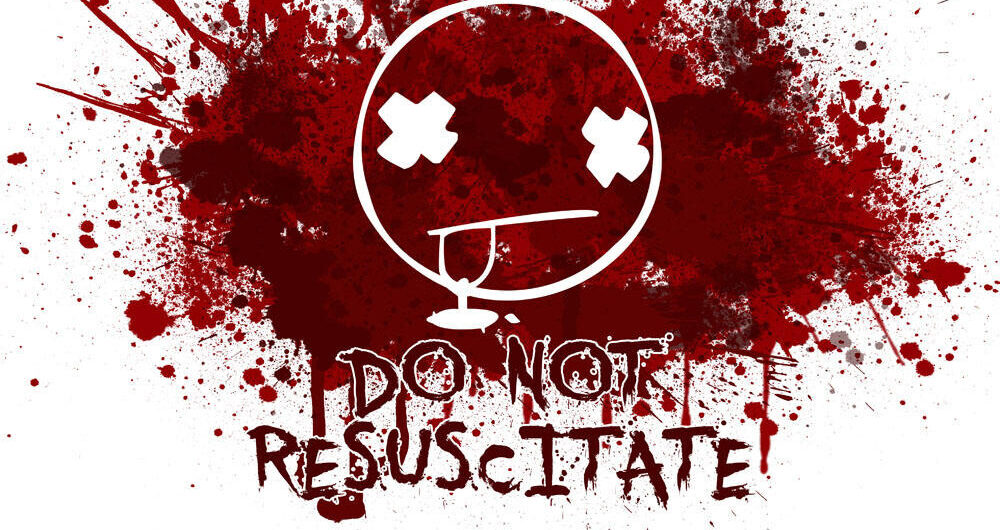A Do Not Resuscitate (DNR) order is a legal directive that instructs healthcare providers not to perform CPR (cardiopulmonary resuscitation) if a patient’s breathing or heartbeat stops. It is a critical component of end-of-life care, ensuring that medical interventions align with a patient’s wishes.
DNR orders are commonly used for individuals with terminal illnesses, severe chronic conditions, or advanced age who choose to forgo resuscitation efforts. Understanding how DNR orders work, their legal implications, and their ethical considerations can help individuals and families make informed decisions about their medical care.
What Does a DNR Order Mean?
A Do Not Resuscitate (DNR) order is a medical directive that tells healthcare providers not to perform life-saving interventions if a patient goes into cardiac arrest or respiratory failure. These orders are made to prevent unnecessary suffering and allow for a natural death in cases where CPR or other resuscitation methods may not improve quality of life.
Key Components of a DNR Order
• Applies only to CPR – A DNR order specifically prohibits CPR, which includes chest compressions, electric shocks (defibrillation), or assisted breathing through a ventilator.
• Does not affect other treatments – Patients with a DNR order can still receive pain management, oxygen therapy, antibiotics, or palliative care to improve comfort.
• Must be written by a doctor – A DNR order is an official medical document that must be authorized by a physician after discussing options with the patient or their legal representative.
Who Chooses a DNR Order?
A DNR order is usually requested by:
• Patients who have a terminal illness such as cancer, advanced heart disease, or severe lung conditions.
• Elderly individuals who do not want aggressive life-saving measures in case of a medical emergency.
• Patients who prefer quality of life over life-extending treatments with little chance of recovery.
• Family members or legal guardians making decisions on behalf of an incapacitated patient based on their known wishes.
Types of DNR Orders and Their Legal Aspects
DNR orders vary depending on where they are issued and how they are applied in medical settings.
Hospital DNR vs. Out-of-Hospital DNR
• Hospital DNR – Only applies while the patient is in the hospital or under medical supervision. If the patient is transferred elsewhere, the order may need to be reissued.
• Out-of-Hospital DNR – Also known as a pre-hospital DNR, this ensures that emergency responders (paramedics, EMTs, firefighters) do not perform CPR outside a hospital setting.
DNR vs. Do Not Intubate (DNI)
• A DNR order prevents CPR, including chest compressions and defibrillation.
• A DNI (Do Not Intubate) order specifically prohibits the use of ventilators but allows other resuscitation efforts.
Legal and Ethical Considerations
• State and country-specific laws – DNR regulations vary by region; some require special DNR bracelets or paperwork to ensure compliance.
• Patient autonomy – The decision to issue a DNR should be based on patient preferences, ensuring their rights and dignity are upheld.
• Family disagreements – In some cases, family members may disagree on whether a DNR order should be in place, making advanced directives essential for clarity.
Why Some Patients Choose a DNR Order
Many patients opt for a DNR order because they prioritize comfort over aggressive medical interventions.
Reasons for Requesting a DNR
1. Low survival rates after CPR – Studies show that CPR success rates in critically ill patients are often low, and those who survive may suffer from brain damage or organ failure.
2. Avoiding unnecessary suffering – Some individuals prefer a peaceful, natural passing rather than undergoing painful and invasive procedures.
3. Personal beliefs and values – Religious or personal beliefs may influence a patient’s decision to forego resuscitation in favor of palliative care.
4. Severe health conditions – Patients with end-stage cancer, advanced dementia, or multi-organ failure may not benefit from CPR and prefer comfort-focused care.
How to Set Up a DNR Order
Steps to Obtain a DNR
1. Consult with a physician – The patient (or their legal representative) discusses their medical condition, prognosis, and treatment options with their doctor.
2. Sign a legal document – A DNR form must be completed and signed by the patient (if capable) and their physician.
3. Inform family and caregivers – It is crucial to communicate the decision to family members, healthcare proxies, and caregivers.
4. Carry a DNR identification – In some regions, patients are given DNR bracelets, wallet cards, or official documentation to ensure medical personnel follow their wishes.
Advanced Directives and Living Wills
A DNR order is often part of a broader advance directive, which may also include:
• Living will – A document outlining a person’s wishes regarding medical treatment in case they become incapacitated.
• Healthcare proxy – A legal designation allowing a trusted individual to make medical decisions on behalf of the patient.
Common Misconceptions About DNR Orders
Despite their importance, DNR orders are often misunderstood.
Myth vs. Fact
1. Myth: A DNR means stopping all medical treatment.
Fact: A DNR only applies to CPR. Patients can still receive other medical care and comfort treatments.
2. Myth: DNR orders are permanent.
Fact: Patients can change or revoke a DNR order at any time if they reconsider their decision.
3. Myth: Doctors force DNR orders on patients.
Fact: A DNR order is a patient’s choice, and doctors only advise based on medical prognosis.
Conclusion
A Do Not Resuscitate (DNR) order is a crucial medical directive that allows patients to make informed decisions about end-of-life care. By understanding the purpose, types, and legal aspects of DNR orders, individuals can ensure that their medical preferences are respected and followed.
Proper communication with healthcare providers and family members is essential to making the right choice about a DNR order. Discussing advance care planning and setting up legal documentation helps avoid confusion and ensures dignity in end-of-life decisions.
References
The information in this article is based on guidance from leading medical institutions, legal frameworks, and palliative care experts. Sources include:
• American Heart Association (AHA) – Guidelines on CPR and resuscitation ethics.
• World Health Organization (WHO) – Policies on end-of-life care and patient rights.
• National Institute on Aging (NIA) – Resources on advance care planning and living wills.
• Centers for Disease Control and Prevention (CDC) – Statistical data on CPR survival rates.
• Legal and healthcare advisory bodies providing DNR laws and regulations.
Also Read About : New Gene Therapy Cures Childhood Blindness
Visit Us At : https://g.co/kgs/rTqAjgt





